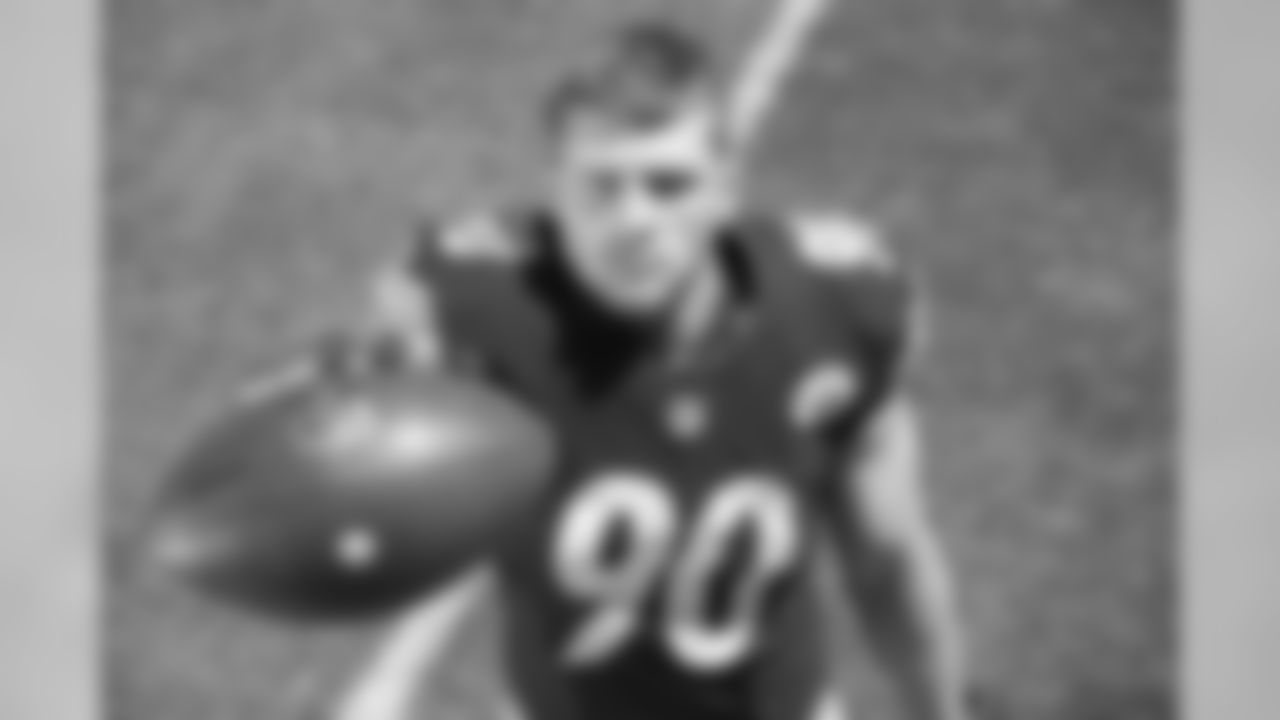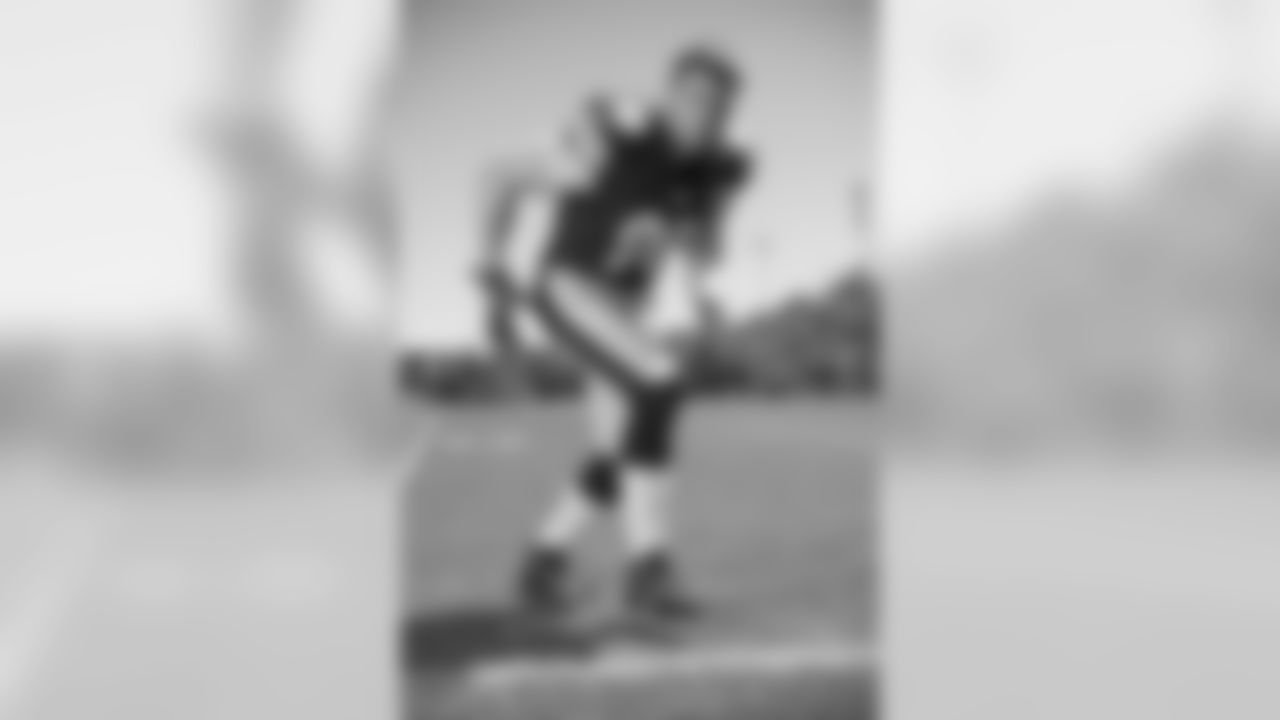Ready or not, here it comes:
- The Steelers made a couple of roster moves yesterday, neither one all that surprising, but both of them sad in a way. The first announcement was that Greg Warren, the 12-year veteran long-snapper, was waived with a failed physical designation, and then later in the afternoon it was announced that Ladarius Green also was waived with a failed physical designation.
- Dealing with them in the order in which they became known, Warren will be missed because he was a good teammate, a good guy, and the perfect long-snapper in that his position never was noticed over the course of his entire dozen years with the team except for those two stints he spent on the injured reserve list with torn ACLs.
- Warren also was wise in the ways of the NFL, which, make no mistake, contributed to his longevity. Long-snapper is a position where NFL teams often look to go younger and cheaper, but Warren kept himself viable by being willing to go year-to-year with one-year deals, and that strategy allowed the Steelers the annual cap savings as allowed by the CBA for vested veterans signing one-year deals, while Warren still was making in the neighborhood of $1 million a season.
- Accompanying the announcement of his release, Warren offered this statement: "I would first like to thank the Steelers organization, coaches and training staff for their help and advice over the last few week. I had full intentions of playing this upcoming season, but in light of new information I've recently received from my doctors relating to a past injury, it has been determined that trying to compete in the 2017 season may be a risk to my long-term health. After discussing this with the Steelers, we have decided it would be in everyone's best interest to release me at this point."
- Clearly, this move was the other shoe dropping following the team's selection of long-snapper Colin Holba in the sixth round of the 2017 NFL Draft. Mocked at the time by many in the media, the move actually was a wise one by the Steelers because it showed they were preparing for this eventuality. And the failed physical designation allows Warren to take advantage of a provision in the CBA that contains financial provisions for players under contract who are forced out of the league by an injury sustained as a result of playing football.
- So in this instance, kudos to the Steelers for having the foresight to prepare themselves for the possibility of Warren being unable to continue his career because of a previous injury. And kudos to Warren for knowing when to say when, so that he gets out of football in relatively good physical and financial shape.
Exclusive look at No. 1 draft pick T.J. Watt in his Steelers uniform for the first time.















- A not so happy ending is tied to the Ladarius Green move, and it's completely fair to include him among the Steelers' worst unrestricted free agent signings since this became a part of the NFL landscape in 1993. Green ended up spending more time on the physically unable to perform list and the inactive list than he did on the field.
- Because of what Green was paid when he signed in March 2016 – a reported four-year contract for $20 million that included a signing bonus of $4.75 million – and what he contributed on the field, which was 18 catches for 304 yards and one touchdown in six games, there is blame to be assessed, primarily for the negative impact it will have on the team's salary cap in the manner of dead money at a time when the Steelers might need that space to get long-term deals done with Le'Veon Bell, Alejandro Villanueva, and maybe Stephon Tuitt and Ryan Shazier.
- What's less significant is what Green's absence will mean to the offense. He wasn't a difference-maker as a blocker in the running game, and when it's time to throw the ball in 2017 I strongly believe that Martavis Bryant will pose a more difficult matchup problem for the defense than any tight end.
- I've seen Bryant around the UPMC Rooney Sports Complex, and he definitely didn't spend his time away from the Steelers laying around on the couch eating bon-bons. He didn't get shorter or slower, that's for sure, and his upper body is well-defined. There also seems to be a resolve about him that he didn't have during his first couple of seasons in the NFL.
- Whatever consternation an opposing defensive coordinator might feel if the Steelers would align a tight end with Ladarius Green's receiving ability in the slot will pale in comparison the first time that coordinator gets a look at Bryant. He is the personification of a matchup dilemma.
- Le'Veon Bell, Antonio Brown, Martavis Bryant, Sammie Coates, and JuJu Smith-Schuster, plus Ben Roethlisberger. Who needs a tight end?
- The book is titled, "Joe Greene: Built By Football," and it's an autobiography/memoir of the greatest player in Steelers history. Because Greene has had so much written about him, and has been a subject of "A Football Life" on NFL Network, a lot of what's in this book that he produced in conjunction with Jon Finkel is familiar. But there still are enough nuggets to entertain die-hard Steelers fans.
- In Thursday's edition of Asked and Answered, a reader submitted a question asking for my opinion on the best running back in Steelers history? After altering the wording in the question to change it from "best" to "most significant," I picked Franco Harris. Based on what he wrote in "Built By Football," Joe Greene agrees.
- "For me, the big change came when we drafted Franco," writes Greene. "Terry was terrific, but Franco made it all happen with his attitude and his performance on the field. He changed everything for us. Back then it was a running league, and you had to have a dynamic runner, and for many years we had what I'd say was the best in the league."
- Befitting the player regarded as the Steelers' preeminent leader both on the field and in the locker room, Greene also touches on a number of issues of personal character.
- About mental toughness: "I truly believe that you must have mental toughness to succeed in life, and the only way to get mental toughness is to overcome adversity. The harder the adversity you overcome in your profession or personal life, the stronger you will become. The more scratching and digging and crawling and clawing you put in to achieve your goal, the better off you'll be. I didn't know it at the time, but that's what my first two years in Pittsburgh were about: building our toughness and giving us the mental foundation to be able to eventually win a championship."
- About integrity: "As we were preparing for (a game against the Houston Oilers), one of our locker room attendants found a playbook that the Oilers had left behind. He brought it to Coach Noll, who quickly called a team meeting. A few minutes later, Coach stood in front of all of us and held out a binder. 'Gentlemen,' he said. 'This is the Houston Oilers' playbook. We play them twice this year. We have all of their plays and their game plans.' Then Coach Noll held out the playbook and dropped it into the trash can. 'We're not going to open it,' he said. 'That's not how we do things. We're going to prepare how we prepare, we're going to line up against them on the field, and we're going to do what we do, and that will give us the best chance to win.' Then he walked away."
- About ego: "The way I've always looked at ego is that ego is the little guy that pushes you and motivates you. And as long as he stays the little guy, things are fine. But if he becomes the big guy and he's sitting on top of your shoulders and he's in your head and putting words in your mouth, then ego is in the wrong place."
- "Joe Greene: Built By Football," is available on Amazon.com.














